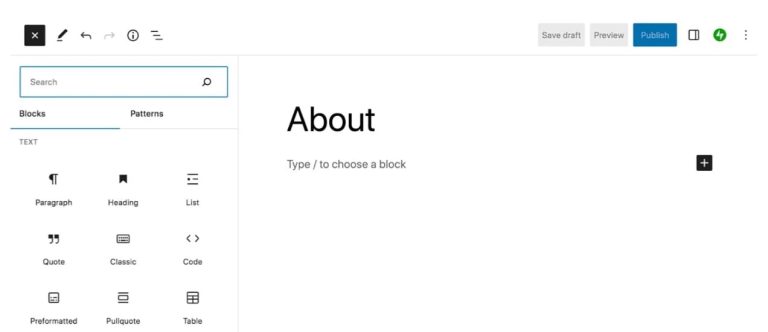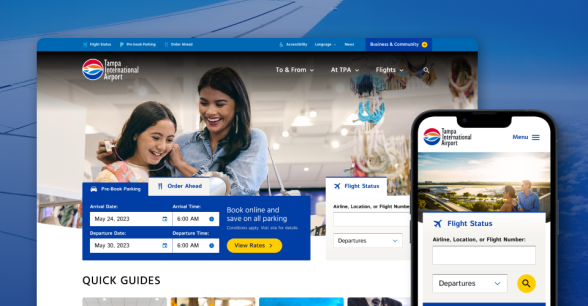
Rich Communication Services (RCS) is an interactive messaging protocol that uses more advanced messaging features such as sender verification embedded in the RCS protocol, read receipts, file sharing, and much more. Rich Communication Service was initially developed for Android devices. Rich Communication Services is now considered an industry standard, and RCS aims to replace Short Message Service (SMS) and Multimedia Messaging Service (MMS) text messaging, which will modernize text messaging.
What is RCS Messaging?
Rich Communication Services was introduced in 2007 to compete with Over The Top (OTT) streaming media businesses such as Netflix, Amazon Prime, and Spotify, which bypassed traditional cable and satellite providers. Rich Communication Services can share images and multimedia content, like videos.
Though MMS includes rich text, such as pictures, videos, emojis, and audio, RCS can do video calling, location sharing, and share high-resolution images while operating over Wi-Fi or mobile data like SMS messages. The RCS messaging is more interactive and user-friendly, allowing users to send alerts with links and request payments or tickets, such as airline boarding passes or concert tickets, without leaving the text conversation.
Features of RCS messaging
Rich Communications Services separates itself from the former texting methods with its ability to perform group chats with up to 100 participants, auto-response to answer questions, and allow messages to open directly into other applications, like browsers or maps.
Other advanced features that RCS provides:
- Location sharing: Can map share and send geographical coordinates
- Secure communication: End-to-end encryption using the Transport Layer Security for encryption
- Interactive action buttons: Allow users to execute an action directly from the message, like making an appointment or purchasing a ticket
- Transaction notifications: After a customer makes a payment, the user can receive an RCS message with a digital receipt, transaction notification, and an action button to review the order
- Larger file limits: Users can send files up to 10MB in size
- Read receipts: Users can see when a message has been read or received
- Real-time updates: Businesses can send multimedia-enhanced status updates about ongoing events or appointments
- Rich cards: Can send batches of information in a variety of formats such as audio, GIFS, video PNG or JPG
- Typing indicators: Let a user know someone is responding
- High-resolution multimedia images and video: Users can send multimedia data within a conversation without any MMS file size limitation concerns
- Cross-application connectivity: RCS can send a message that opens other applications
- RCS Chatbots: Chatbots reduce response time, improve query resolution, and increase the conversion rate through increased customer engagement
Rich Communication Services provides a broader reach to employees or a specific audience because all phones support SMS messaging. Overall, RCS can boost a business’s customer engagement with increased brand visibility, branded messages, and built-in analytics that help improve marketing campaigns.
Benefits of using RCS messaging
The benefits of RCS messaging improve businesses’ overall efficiency and effectiveness by providing more detailed methods of communication with alerts, action buttons, and analytics that provide feedback from a customer base. Rich Communication Services offers more dynamic communication options via text messaging. Video calling, group chats, and typing indicators are RCS-enhanced communication methods.
Other advanced features that help improve business operations are:
- Accessibility: RCS can integrate into a phone’s messaging applications, including different devices and operating systems, without users installing separate applications
- Personalization: Personalizing a customer’s experiences helps increase customer satisfaction, which leads to increased revenue generation
- Analytics: RCS text messaging provides analytics, allowing businesses to receive real-time feedback that business can use to better align with current customer’s feedback to improve marketing campaigns or revenues
- Chatbots: A conversational tool to help expand customer interaction on a 24/7 basis that analytics can exploit to help businesses improve some aspect of business operations such as customer support, sales, and lead generation, or a business procedure
- Enhanced message tracking: Allows businesses to track message delivery and read receipts that ensures customers’ messages are being responded to promptly
- Account alerts: RCS can send account alerts such as service reminders, fraud alerts, and payment receive messages to customers’ inboxes
- Recommended actions and replies: RCS can help customers take the next step in a business process with an action button or reminder notification
Rich Communications Services offers several automated features, such as Rich cards, Chatbots, and automatic routing, which businesses can use in various ways without human intervention while allowing human interaction when required. Rich Communication Services is backward compatible with SMS messaging and can seamlessly revert to SMS messaging when an internet connection is unavailable.
How to implement RCS messaging in your business
All businesses have different goals, so what does a business want to accomplish when implementing RCS messaging? Does a business want to increase sales, improve customer support, respond to paying customers promptly, or have remote unplanned meetings when necessary? Whatever the goal or the objective is for a company, the company needs to define a strategy with objectives to accomplish those goals.
1. Create actionable objectives containing actionable verbs demonstrating how the business moves from the current status to the end goal within a specific period.
2. Communicate the plan within the organization and choose stakeholders from each department to help keep the entire organization informed.
3. Select an RCS messaging platform with the desired features and analytics your business needs and the ability to grow as your business grows. Review any customer comments from neutral websites.
4. After selecting an RCS platform, set up accounts, brand names, phone numbers, and omnichannel messaging. This allows businesses to consistently communicate with customers across multiple channels to improve website conversion rates or marketing campaigns.
5. Integrate RCS into your business applications using Application Programming Interfaces (APIs) or plugin integration.
6. Implement security best practices using encryption and multi-factor authentication (MFA) or other applicable security tools.
7. Separate your customers based on demographics, purchasing behavior, or location to send relevant messages to each group.
8. Review your objectives to be sure they are aligned with your end goals, and consider whether to send one-way or two-way (conversational) RCS messages. The one-way or two-way RCS messaging should be aligned to meet the end goal.
9. Create a sample size of customers from each group to test the RCS messaging system to see if it meets the intended business goals. Optimize as necessary until the end goal is attained.
Challenges and considerations of RCS messaging
Incorrectly implementing RCS can create security flaws that expose calls and texts to be altered, spoofed, or traced. A faulty implementation can be problematic for businesses’ sensitive proprietary information and employees’ Personally Identifiable Information (PII). A spotty or degraded internet connection will degrade the full potential of RCS’s rich cards, high-resolution images and videos, and other advanced features.
Rich Communication Services messaging is not a universal standard, as some regions and phone carriers are slow to implement RCS technology. The sporadic implementation of RCS limits the reach of RCS messages, leaving users with a splintered experience. Compatibility across different devices and carriers is challenging to overcome, and devices not equipped to handle RCS messaging will only receive an SMS text.
Another ongoing challenge is that Apple devices use Apple Messages for Business, similar to Google RCS messaging. The inability of Apple devices to use RCS messaging and vice-versa for Google leaves businesses in an unsustainable position; making a business choose one messaging system over the other will leave some portion of a customer base out. Fortunately, Apple announced in June 2024 that it will support RCS in the iOS 18 update, which is currently ongoing.
Businesses wanting to implement RCS technology must consider hiring a contracted RCS expert to avoid security flaws that can expose sensitive information. The awareness of RCS messaging and its advanced features is still not widely known to become the universal messaging standard. Fortunately, the four major U.S. carriers recently came together to implement RCS messaging. Verizon, T-Mobile, AT&T, and Sprint are forming a joint venture to facilitate the rollout of RCS technology on all future Android devices.
Future of RCS messaging
The future of RCS messaging, starting with Apple’s announcement of their effort to support RCS in the iOS 18 update this Fall, is promising. Apple states the RCS will provide better interoperability for cross-platform messages than SMS or MMS texts.
Rich Communication Services will provide businesses with verified sender profiles that help customers identify official business accounts, allowing customers to engage in business communications and transactions confidently.
Future advanced features included in RCS are:
- Interactive chatbots: will include personalized interactions and better customer service
- Payment integration: this payment feature will allow users to send money or split bills in a chat window
- High-resolution media: will include high-quality images and video, real-time typing indications, and improved group chats.
Research indicates that the global RCS market will grow from $8.37 billion to $19.48 billion in 2028. {Steinbach, Lodema. Title[RCS statistics: 30 things you need to know in 2024]. April 2024. https://www.sinch.com/blog/rcs-statistics/ [ Date Accessed: 8/21/2024]}





